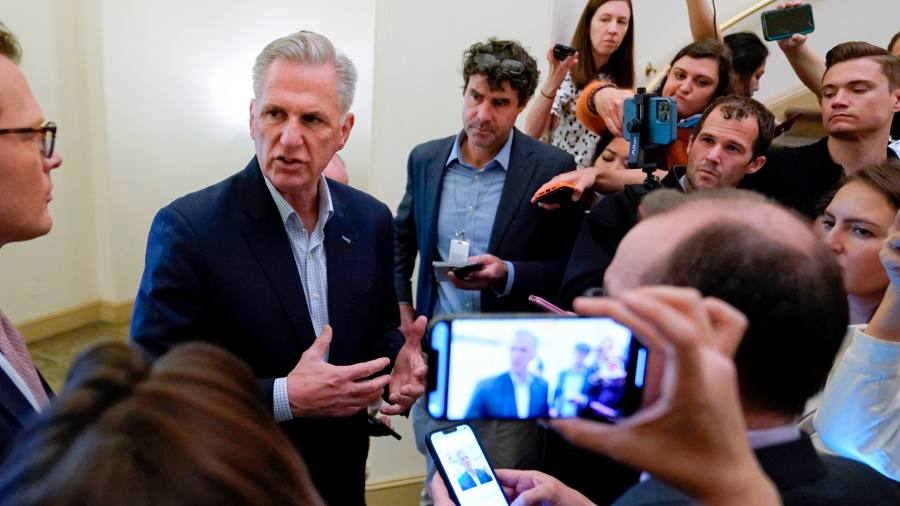The White House and congressional Republicans were racing to seal a deal to avert a US debt default on Saturday as the high-stakes negotiations on a bipartisan fiscal pact dragged on into the weekend.
After a late-night round of discussions ended without an agreement on Friday, negotiators for US president Joe Biden and Republican House speaker Kevin McCarthy made another attempt to resolve their final differences on Saturday.
“We did make progress, we worked well into early this morning, and we’re back at it now. Some things we just have to finish out,” McCarthy told reporters. “We’ve got to make sure we get a right agreement for the American people.”
He nodded to the fact that the deal with Biden would involve tough compromises.
“Everybody won’t like what is the end of the agreement . . . on both sides,” he said. “Is it everything I wanted? No, it has to pass the Senate and get signed by the President. But I firmly believe that people if they sit back and look at this, from all of America, they’ll say: ‘You know what? that’s a much better product.”
Biden expressed optimism about the talks on Friday evening before leaving for Camp David, the presidential retreat in Maryland, where he is following the final stretch of the negotiations.
Although both sides are coalescing around a deal that would raise the debt limit for two years and limit government spending over the same period, one person familiar with the talks said Republican demands to attach new work requirements to anti-poverty programmes remained a sticking point.
The White House and Congress have until June 5 to enact legislation to raise the country’s $31.4tn debt ceiling or the US will run out of money to pay all its bills, according to the latest estimate from Janet Yellen, the US Treasury secretary, which was released on Friday.
If no deal is made, the US would face a damaging default on its government debt which could rattle global financial markets, trigger a sharp economic downturn, and damage America’s creditworthiness.
House Republicans have vowed to give their lawmakers at least 72 hours to consider the debt ceiling legislation before a vote, after which it would move to the Senate for final passage in Congress.
Both Republican and Democratic leaders will need to limit the number of defections within their ranks in order to ensure any deal is approved, with hardliners in both parties likely to reject the emerging compromise.
But many lawmakers and the White House are likely to see the pact as necessary to avoid a much broader and self-inflicted economic and financial meltdown with less than 18 months to go before the next presidential election.
Shalanda Young, the White House budget director, and Steve Ricchetti, a senior aide to Biden, have been leading the talks on behalf of the president, while Patrick McHenry, the chair of the House financial services committee, and Garret Graves, a Louisiana lawmaker, have been doing the same for McCarthy.
The speaker was huddled with McCarthy and Graves in the US Capitol on Saturday, though they briefly left to buy Chipotle Mexican take-out for lunch.
Credit: Source link











